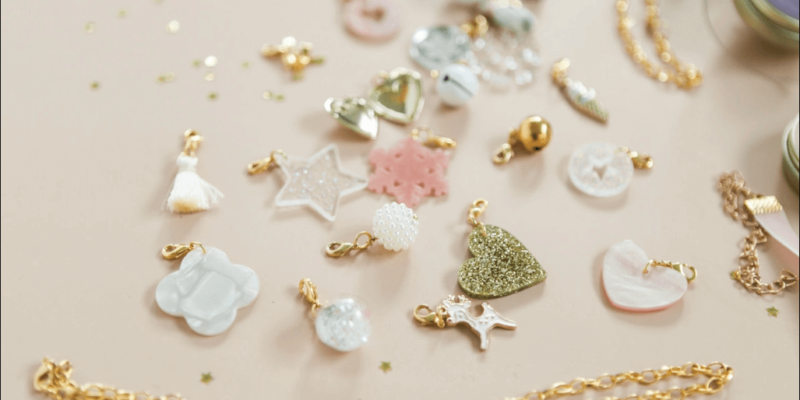
Jewelry distributors are vital players in the jewelry industry, serving as the essential bridge between manufacturers and retailers. They ensure that a wide variety of jewelry pieces—from luxury items to affordable accessories—reach retail stores, boutiques, and online platforms. This article explores the crucial role of jewelry distributors, the benefits they offer to retailers, the challenges they face, and tips for selecting the right distributor for your business.
The Role of Jewelry Distributors
Jewelry distributors act as intermediaries who purchase jewelry in bulk from manufacturers and then distribute these products to retailers at wholesale prices. By doing so, they allow manufacturers to focus on production while retailers concentrate on sales and customer service. Distributors often manage a vast inventory of jewelry, including rings, necklaces, bracelets, earrings, and other accessories, catering to various market segments.
One of the key functions of a jewelry distributor is to provide retailers with access to a broad range of products. They source items from multiple manufacturers, ensuring that retailers can offer diverse collections to their customers. This variety helps retailers meet different consumer preferences, whether it’s high-end luxury pieces or trendy fashion jewelry.
Benefits of Working with Jewelry Distributors
Partnering with jewelry distributors offers several advantages for retailers, enhancing their ability to compete in the market and meet customer demands.
1. Access to a Wide Range of Products
Jewelry distributors typically offer an extensive selection of products, allowing retailers to stock their shelves with a diverse array of jewelry. This variety is essential for attracting different types of customers and staying relevant in a competitive market. Retailers can easily refresh their inventory with the latest trends and classic staples, ensuring they have something for everyone.
2. Cost Efficiency
Distributors purchase jewelry in large quantities directly from manufacturers, which enables them to secure better pricing. These savings are passed on to retailers, allowing them to buy products at competitive wholesale prices. This cost efficiency is crucial for retailers looking to maintain healthy profit margins while offering attractive prices to their customers.
3. Simplified Inventory Management
By working with a jewelry distributor, retailers can streamline their inventory management. Distributors often allow retailers to purchase smaller quantities of a wide range of products, reducing the need for large upfront investments. This flexibility helps retailers manage their cash flow more effectively and reduces the risk of overstocking or running out of popular items.
4. Risk Mitigation
Sourcing jewelry directly from manufacturers can be challenging and risky, especially for smaller retailers. Quality control issues, unreliable suppliers, and logistical challenges can all impact a retailer’s ability to maintain a consistent inventory. Jewelry distributors mitigate these risks by handling the sourcing, quality assurance, and logistics, providing retailers with reliable access to high-quality products.
5. Market Insights and Trends
Many Jewelry Distributors stay ahead of market trends, regularly updating their inventory to reflect the latest styles and consumer preferences. This proactive approach allows retailers to offer their customers the newest and most sought-after pieces, helping them stay competitive and relevant in a fast-changing industry.
Challenges Faced by Jewelry Distributors
While jewelry distributors play a crucial role in the supply chain, they also face several challenges that can impact their operations and relationships with retailers.
1. Market Volatility
The jewelry industry is subject to fluctuations in the prices of precious metals and gemstones, which can affect the cost of products. Distributors need to navigate these market changes while maintaining competitive pricing for retailers, which can be a delicate balancing act.
2. Supply Chain Disruptions
Global events, such as natural disasters, political instability, or pandemics, can disrupt the supply chain, leading to delays or shortages. Distributors must have contingency plans in place to manage these disruptions and ensure a steady supply of products to their retail partners.
3. Counterfeit Products
The jewelry industry is not immune to counterfeit products, which can damage a retailer’s reputation if sold unknowingly. Distributors must implement strict quality control measures and work with reputable manufacturers to ensure the authenticity of their products.
4. Competition
The jewelry distribution market is highly competitive, with many players vying for the attention of retailers. Distributors must differentiate themselves through quality, service, and pricing to attract and retain retail clients.
Choosing the Right Jewelry Distributor
Selecting the right jewelry distributor is crucial for retailers looking to build a successful and sustainable business. Here are some key factors to consider when choosing a distributor:
1. Product Quality and Variety
The quality of the jewelry you sell is directly linked to your brand’s reputation. Ensure that the distributor you choose offers high-quality products and a diverse range of styles to meet your customers’ needs.
2. Reputation and Reliability
Research the distributor’s reputation in the industry. Look for reviews, testimonials, and references from other retailers. A reputable distributor should have a track record of reliability, including timely deliveries and consistent product quality.
3. Pricing and Payment Terms
Compare pricing among different distributors to ensure you’re getting a competitive rate. Additionally, review the payment terms offered by the distributor. Flexible payment options can help you manage your cash flow more effectively.
4. Customer Service
Good customer service is essential when dealing with a jewelry distributor. Choose a company that is responsive, easy to communicate with, and willing to address any issues or concerns that arise.
5. Logistics and Shipping
Consider the distributor’s logistics capabilities, including their shipping times, costs, and methods. Reliable and efficient shipping is crucial for maintaining a steady inventory and meeting customer demands.
Conclusion
Jewelry distributors are essential links in the jewelry supply chain, providing retailers with the products and support they need to succeed. By offering a diverse range of high-quality jewelry at competitive prices, distributors help retailers stay competitive in a dynamic market. While there are challenges in the industry, choosing the right distributor can lead to a successful and profitable retail business.











